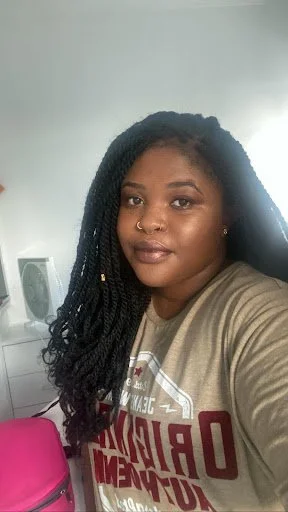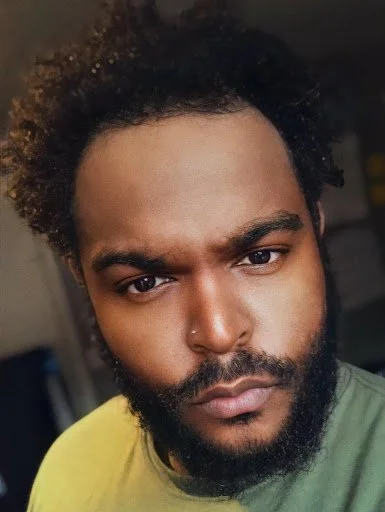The Future Of Blackness And The People Creating It
Written by Chidinma Iwu
Millennials and Gen Zers may not be old enough to have experienced the previous eras characterized by numerous life-threatening events for Black people and communities, but its impact on their everyday living still manifests.
From the objectification of Black women to the exertion of systemic and individual racism and the proliferation of the cultural conflicts which exacerbate the exploitation of African resources, the noise is not dead yet. Sometimes they hear it in resounding echoes, and other times, in screeching, deafening noises they have no control over.
These people, like me, have promised to not be their fathers and mothers. They're striving to sustain their legacies but have chosen to not suffer the same fate with racism, ignorance, imposter syndrome stemming from exclusion and bias, and misogynistic beliefs which constantly belittle women.
Even as humans with flaws and varying opinions and cultural differences, the quest to change the perception of Blackness, dismantle white supremacy, and create better opportunities for the coming generation thrives.
There's a new trajectory for the future of Blackness. Young Black people continue to challenge systems of oppression that narrow the definition of the Black experience to break intercultural barriers and take on issues that plagued Black people’s wellbeing in the past.
Displaying resilience through artistic innovations, political protest and career upgrades; Black youths are retelling history and reimagining the future. While it is clear that past generations of Black people were not completely in control of the unruly experiences which befell them, it is even clearer that the future of Blackness is completely in our hands.
For example, after the death of George Floyd in 2020, 16-year-old Shayla Avery texted her friends: “we should do something.”
She was infuriated by the fact that her teachers did not actively speak about the glaring and unfortunate situation. Shayla took to the streets with a team of two. She wasn't expecting more than 100 other people to turn up, but Shayla's expectations were beaten as they were soon recording thousands of protesters!
While discussing the inspiration behind her decision to pioneer a Black youth protest against racism in The Guardian, Shayla says, “If you're determined and really about what you say, then all you need is a strong voice."
Similarly, when the End SARS protests began in October 2020, there wasn't much confidence in a small gathering of young people holding placards transcending into the largest and most popular resistance a government has faced – but it happened!
The demonstrations initially started as an outcry against Nigeria’s SARS police unit and evolved into a larger protest over bad governance. Not only did it hold immense power on the streets, but it was also the most tweeted hashtag in 2020 with over 48 million tweets.
Rinu Oduola, 23, was one of the protest's active leaders – taking to the streets in its early stages and rallying other protesters through her social media platform.
To further explore how Black youth are actively rethinking the future of Blackness, I spoke with three young Black leaders earnestly working to retell stories of Black experiences.
Zuva Seven, a 26-year-old British South African, is imagining the future of Blackness as one that embraces Black people of all creeds: from diverse cultural, ethnic backgrounds and religious views.
Zuva thinks many Black people have a heteronormativity problem and would like them to let go of its grip and learn how to embrace love: “I'd prefer [Black people] to expand on what ‘Blackness’ is and realise it comes in various shapes, forms and life experiences,” Zuva began.
“Currently, there is a lot of defensiveness, which is fair, but I'd rather hope to see people finally living. Survival isn't enough, I want us to be able to enjoy life.” Even as she works as a journalist – covering health, wellness and LGBTQ+ issues – her dream is to be a screenwriter uplifting Black joy.
Zuva says that in her childhood home, they barely discussed romantic love, and she believes this is a prevalent reason why many young people find themselves struggling to make the right connections.
“I'm motivated towards redefining the rom-com genre and centering Black joy – especially Black queer joy. I think documenting the struggles we go through is important, but focusing on them alone is not healthy. So I want to help show Black folk living their best (and most complicated) lives on TV and finding love,” she continued.
The multifaceted writer and editor has currently prioritised writing about mental health and wellness. Especially as she faces mental health struggles herself. Her magazine An Injustice! spotlights stories of marginalized voices.
“I saw very limited work by Black people writing on those topics, so I decided to add to that and try to help people in a similar position to myself. Furthermore, I think the writers are there, they just aren't given the opportunity. So hopefully, writing in this field allows for more doors to be open. This was also the reason I started my publication An Injustice!, to give a platform for diverse stories. I refuse to believe we are voiceless, we're just ignored and not given the grace to speak.”
For Ashley Rouen Brown, if Black people continue to invest and help each other, especially in ways beyond finances, he imagines there would be an increased positive effect on the way they live as individuals. But the 29-year-old has his fears.
Speaking about the Global North, Ashley believes there is a rising division within Black communities, intensified by policies and ideologies designed to shut them out of accessing promising opportunities. The recent reform to student loans and asset price inflation proves these uncertainties.
In the Global South, Ashley wants to address the world order that effectively stifles African and Caribbean growth and innovation. From the unscrupulous trade arrangements that require dependency on former colonisers, to the lack of intra-regional trade which leads to economic leakage, poverty and brain drain – he believes Black people deserve better.
“A big proportion of how we (Black people) are seen in this world is down to white supremacy and the way the world is structured,” Ashley said. “But like I said earlier, helping and investing in one another is the very first step to improving our position in this world, and I'd personally like to see more of that.”
To join in the reformation of Black legacies, Ashley is dedicated to highlighting and amplifying Black voices on social media. As a technical project manager with over eight years of experience in the British and Dutch banking industries spanning consumer fintech, he likes to help out budding project managers. Come to him with questions on technical project management and Ashley uses his experience and knowledge as a technical project manager to provide help.
“I make myself available for Black people, younger and older, who need a leg up getting into my industry or who need advice – and I'm very firm about not charging people for things like that,” he says.
Ashley believes that the challenge with many product managers is that they often fail to imagine others as users. But he plans to be a part of the people implementing change in the industry.
“I think when working in fintech/tech (especially), it's very important to be firm about inclusivity when building or overseeing the development of products, and as a Black person within the industry, making sure that you don't allow half-baked products that haven't considered our needs to go through development without asking challenging questions.”
Founder of Defy Skin, a skincare brand for Black men, Holly Harrison, hopes to see the abolition of social stigmas surrounding young Black men and their mental health. To make a positive change for the future, Holly proposes more education to help peers and colleagues understand the challenges faced amongst Black people as it would ultimately help reduce implicit bias and negative assumptions.
The Caribbean entrepreneur asserts that social stigmas and expectations surrounding Black masculinity are preventing young Black men from seeking support for their mental health. Society's demands of Black men, the sexualisation of their bodies, and toxic masculinity are key propellers endangering men's health and Holly seeks to fix this with her brand Defy Skin.
Now more than ever, she actively believes in more support for the Gen Z and Millennial crossover to help correct the stereotypes around Black men.
“How Black men are currently perceived in terms of how they should act, I believe, is contributing massively to self-fulfilling prophecies which can then lead to gang culture and crime. More needs to be done in terms of promoting self-awareness and being able to open up mentally without fear of perception,” Holly said.
Defy Skin focuses on defying social stigmas and promoting self-awareness whilst also being affordable and readily available to both men and women. All of her products are formulated to naturally help uplift the mood and improve mental well-being, which she believes is a great part of a healthy Black experience.
“A lot of skincare brands have very similar products which vary slightly in terms of ingredients. We want our formulations to be unique and offer our customers something new, effective and different,” Holly said about her brand.
Holly wants more Black representation in branding and across social media and has set plans to work with more Black influencers and musicians to achieve this. Her collaborations are intended to open up and spread even more awareness on the topic which will hopefully inspire others and change the current perception of Black men.
“I imagine a future with less negative expectations on how they should think and act in society. I want to see young Black people thrive mentally and not fall into the spiral of self-fulfilling prophecies caused by social stereotypes.”
Chidinma Iwu (she/her) is a writer covering stories about sustainability, tech, internet culture and women. She likes to think there's an intersection between wrong, right, and an appearance of rightness— and she's keen on studying their interrelation.





